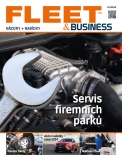As cryptocurrency adoption grows, ensuring the safety of your digital assets is more important than ever. Two popular methods for securing cryptocurrencies are MPC wallets and cold wallets. While both offer high security, they work in distinct ways. In this article, we'll explore the key differences between MPC (Multi-Party Computation) wallets and cold wallets, helping you decide which solution is best for safeguarding your crypto.
What is an MPC Wallet?
An MPC Wallet is an advanced cryptographic method that splits a private key into multiple parts and distributes these parts among different parties. No single party ever has access to the entire key, enhancing security. For a transaction to be completed, these parties collaboratively generate the signature without ever revealing or recombining the private key.
Key Features of MPC Wallets:
- Enhanced Security: The private key is never fully exposed at any point, making it highly secure against theft or hacking.
- Distributed Responsibility: The wallet requires multiple parties or devices to approve a transaction, minimizing the risk of a single point of failure.
- Flexibility: Since the private key isn't stored in one place, MPC wallets are suitable for organizations or multi-signature operations.
What is a Cold Wallet?
A cold wallet refers to an offline storage device, typically a hardware wallet or a paper wallet, that is not connected to the internet. Cold wallets store the user's private keys offline, preventing any online attacks such as hacking or phishing. They are considered one of the safest methods to store cryptocurrency, especially for long-term holding.
Key Features of Cold Wallets:
- Offline Storage: Since cold wallets are not connected to the internet, they are immune to online attacks.
- Highly Secure for Long-Term Holding: Ideal for users who want to store large amounts of cryptocurrency without frequent transactions.
- User Control: The private key is under the full control of the wallet owner, with no involvement from third parties.
Key Differences Between MPC and Cold Wallets
Storage and Accessibility
- MPC Wallet: Uses cryptographic techniques to split and store the private key across different devices or entities, which means the wallet is always connected and can be accessed online.
- Cold Wallet: Keeps the private key offline, often in a hardware device or on paper, minimizing exposure to the internet.
Security Approach
- MPC Wallet: Relies on distributed security, where multiple parties are required to authorize transactions, ensuring that no single entity has full control over the private key.
- Cold Wallet: Focuses on physical security by keeping the private key entirely offline, out of reach from hackers and malware.
Transaction Speed
- MPC Wallet: Can be accessed and used for transactions more easily than cold wallets since it doesn’t require physically reconnecting a device to the internet.
- Cold Wallet: To initiate a transaction, the wallet must be connected to an online device, signed, and then disconnected, making it less convenient for frequent transactions.
Ideal Use Case
- MPC Wallet: Best suited for organizations and high-net-worth individuals who require both enhanced security and the convenience of frequent access.
- Cold Wallet: Ideal for long-term holders who prioritize offline security and don’t need immediate access to their funds.
Which One Should You Choose?
The choice between an MPC wallet and a cold wallet depends on your needs:
- If you are a long-term holder, security-conscious, and plan to store your assets for extended periods, a cold wallet may be your best option.
- If you are part of an organization or need to make frequent transactions while ensuring your assets are distributed securely, an MPC wallet provides flexibility and advanced protection.
Overall
Both solutions are excellent for protecting your digital assets, but your choice should depend on your unique security requirements and usage patterns.



